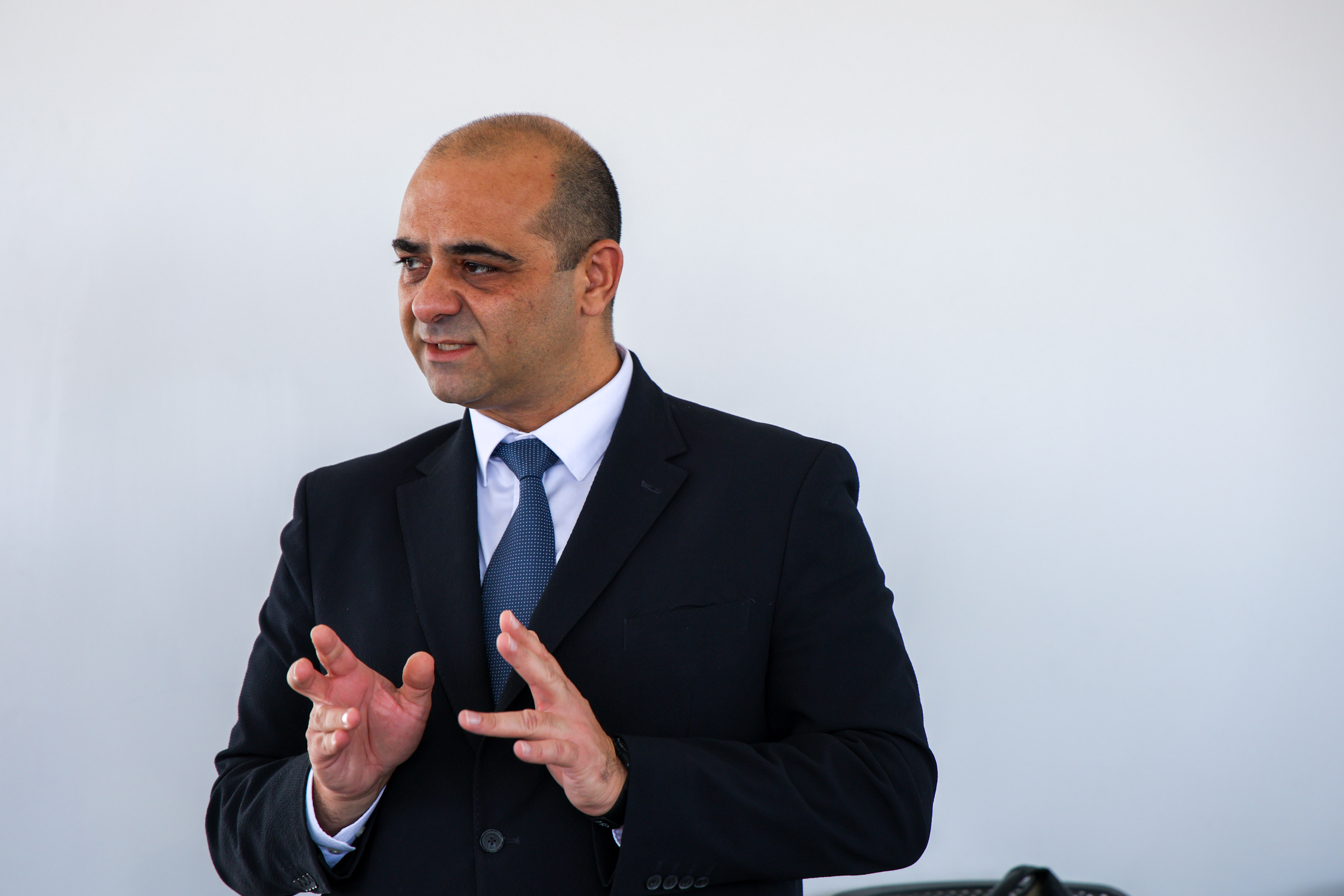Trade union representatives on Friday left a meeting with Labour Minister Yiannis Panayiotou over the cost-of-living allowance (CoLA) without making any statements.
The representatives were quizzed by journalists while leaving the labour ministry, but remained silent, with Panayiotou set to meet representatives of both the Cyprus chamber of commerce and industry (Keve) and the employers’ and industrialists’ federation (Oev) in the coming days.
After that meeting, it is expected that he will hold another meeting with trade union leaders.
On Wednesday, trade union Sek’s secretary-general Andreas Matsas had warned of an “escalation of measures” if Friday’s meeting yielded no results.
“Depending on the positions or the approach which will be analysed for us, we have made a decision and are authorised to activate decisions to escalate measures if this is deemed appropriate,” he said, with this understood to mean that if progress was not achieved, a general strike may follow.
“The message received from the strikers was clear and the collective position of the trade unions today was also clear that, if necessary, we will escalate the measures,” he said.
A three-hour general strike two weeks ago saw the island brought to a standstill, with workers demanding that CoLA be restored in its full, original form, stressing that the allowance preserves workers’ purchasing power, supports living standards and consumption, and helps enforce collective agreements.
Public services and public transport were the most affected, with more than 50 flights and 15,000 airline passengers impacted by the strike, while trade unionists across the island took to the streets.
Trade union Peo’s secretary-general Sotiroula Charalambous had last week said the strike would be “the first step in a series of measures, until we achieve the goal, which is collective and universal”.
Last week, Finance Minister Makis Keravnos had said it is “inconceivable” that workers and employers are yet to reach an agreement over the matter.
Asked whether he has an opinion over the ongoing feud, he told reporters that “I have an opinion, I am informed, and when specific information emerges, we will see exactly what results from an agreement”.
“It is inconceivable at this time when the only country in the European Union which has zeroed inflation is Cyprus, while previously inflation was negative, that we cannot reach an agreement. That is why I appeal to all sides. It is a positive juncture to reach an agreement,” he said.
To this end, he stressed the need for “social dialogue” between workers and employers, describing it as “the basic method and the only way to reach a solution when we have critical issues to address”.
His comments came after Oev and Keve had announced that they had received legal advice indicating that legal regulation of CoLA in the private sector is unconstitutional.
The advice had been prepared by Achilleas Emilianides, who had said that regulating CoLA for the private sector by law would impose terms which had not been agreed on by all sides through personal contracts or collective agreements – a right protected by the constitution.
As such, Oev and Keve called on the government “to remain dedicated to the system of tripartite cooperation and the industrial relations code”, which had been agreed upon by workers and employers in 1977.
In response, Matsas said the government must document the legality of its proposal to expand CoLA to cover all workers, even through legislation, by seeking an opinion by the legal service.
“The way this issue … is being handled is placing the smooth development of labour relations at risk and this is, unfortunately, confirmed and should be a matter of concern to the government,” he added.
Earlier in the year, former Oev chairman Antonis Antoniou had expressed his distaste for CoLA, saying it “should have disappeared”.
“We believe that it should have disappeared. There are other tools for employees to achieve their progress, but we accept to continue it with some variations, with a modernisation which is consistent with the economic realities of recent decades,” he said.
His views were echoed by Keve chairman Philokypros Rousounides, who also described it at the time as “an anachronistic institution, which needs improvement or replacement with a new mechanism”.






Click here to change your cookie preferences